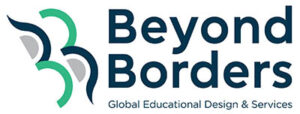UNRWA’s Closure and Trump’s Re-election: A Bleak Horizon for Education and Aid in Gaza and Beyond
UNRWA’s Closure and Trump’s Re-election: A Bleak Horizon for Education and Aid in Gaza and Beyond

Dedicated to the remarkable Palestinian teachers I had the privilege to work alongside—teachers of unmatched resilience, intelligence, and passion. Their dedication to educating and empowering future generations in Gaza, often under unimaginable conditions, inspired me daily. We still grieve their loss, and their absence leaves a profound void.
With UNRWA’s closure in Palestine and the re-election of Donald Trump, the outlook for humanitarian aid and education in Gaza faces its darkest moment yet. These developments cast a shadow over the foundational support systems that countless vulnerable communities rely upon, and it is hard to imagine who will fill the void they leave.
UNRWA’s Work: Education Beyond Basics
For years, UNRWA, the United Nations Relief and Works Agency for Palestine Refugees in the Near East, did more than provide essentials like food and shelter in Gaza. It was a force for self-sufficiency and resilience, especially through education. The dedication of Palestinian teachers was unmatched. They were relentless, embracing continual training, and pouring heart and soul into helping students move forward despite their circumstances.
These teachers weren’t just instructors—they were mentors, creating classrooms where students felt safe and could thrive. They pioneered trauma-informed education, crafting lesson plans that went beyond rote learning to actively engage students, helping them find solace and resilience within the walls of their classrooms. For these educators, teaching was as essential as air and water, a means to nurture future generations in a place where hope was scarce.
UNRWA’s mission wasn’t charity; it was empowerment. It aimed to build Palestinian capacities from within, equipping teachers with the skills to help their communities grow and withstand hardship. Their goal was never merely to “give fish,” but to teach people to fish, enabling Palestinians to build sustainable futures on their own terms.
The Consequences of Funding Cuts
Yet, under Trump’s previous administration, this mission met a devastating end as U.S. funding to UNRWA was slashed. A legitimate UN-backed organization, designed to provide essential services and foster resilience, was abruptly rendered powerless. With Trump’s re-election, fears are reignited that this path of severing humanitarian aid will continue, specifically targeting Palestinian regions. For the children in Gaza who relied on UNRWA schools and teachers as a lifeline, the consequences are severe and deeply personal.
This funding cut does not only affect Gaza but serves as a cautionary tale for global humanitarian efforts. When the work of established aid organizations is stymied, vulnerable communities are left without vital support. The gap left by UNRWA’s departure is a significant challenge, but it is not insurmountable. Humanitarian aid can and must continue, even as we look for new models and partnerships that can rise to the occasion. This is a moment of reckoning for humanitarian commitments worldwide.
The Global Ripple Effect
The implications extend beyond Palestine. When legitimate, UN-backed efforts are stripped of resources and blocked from doing their work, education in conflict zones everywhere is at risk. The global community must unite to ensure that education in these areas is not only maintained but adapted to new realities. In Gaza, the absence of UNRWA’s unique support structure, which went far beyond conventional schooling, deprives Palestinian children of one of their few pathways to resilience. The consequences of this absence will reverberate for years, especially as opportunities for education and mental health support diminish.
In Gaza, the absence of UNRWA’s unique support structure, which went far beyond conventional schooling, deprives Palestinian children of one of their few pathways to resilience. The consequences of this absence will reverberate for years, especially as opportunities for education and mental health support diminish.
Standing Together for a Resilient Future
The story of UNRWA and its dedicated teachers is a profound reminder of what’s at stake when aid is restricted. Trump’s re-election, with its potential for further cuts, asks the international community a pressing question: can we afford to let politics dictate the future of humanitarian aid? For the thousands of Palestinian children who have lost both mentors and safe spaces for learning, this is no longer a policy question—it is a question of survival and human dignity.
In times like these, global solidarity is essential. Humanitarian commitments must remain above political bargaining and must be upheld as core to our shared humanity. Education and mental health resources are not luxuries; they are lifelines, particularly in regions rife with conflict.
As we look to the future, the resilience of Palestinian teachers—those who taught tirelessly and stood as pillars of hope despite impossible odds—should inspire us. UNRWA’s approach has shown the transformative power of education that meets people where they are, fostering resilience and dignity in the midst of despair.
To the incredible Palestinian teachers who gave everything, we owe it to them and their students to advocate for sustained, meaningful humanitarian efforts, ensuring that communities in crisis do not lose access to hope, learning, and the opportunity for a better tomorrow.

